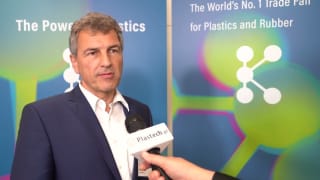
Magnetfabrik Bonn, a long-standing supplier to German high-tech industries, has relied on Hasco filtration components for decades and has now evaluated the new H5055 hole filter in production. The company produces around 78 million magnets annually, using fully automatic injection moulding to process polyamide as a binder, both as virgin material and recyclate or millbase. The compounds are highly filled with hard ferrites and rare earths, with specific additives selected to meet magnetic and mechanical requirements. Flow behaviour in the mould is simulated to safeguard part quality. Historically, Magnetfabrik Bonn has installed hole filters such as the H109 on the nozzle side to retain foreign matter, from broken screws or mill splinters to fragments of packaging. Product responsibility for design resides with customers, while the Bonn team focuses on customer-specific development and design. With quality described as paramount, the company reports that practical trials of the H5055 delivered measurable processing benefits and is now transitioning its site in stages to the new filter.

Presentation of the new Hasco hole filter H5055/…, Frank Burilov and Marcus Mohr from Magnetfabrik Bonn talking to Stefan Reich and Jörg Karthaus from Hasco
H5055 hole filter design and performance
According to Hasco, the H5055 hole filter is manufactured from stainless steel and incorporates more than 1,000 angled holes to optimise melt flow while reducing shear and flow velocity. In a market comparison, the company states that the H5055 achieves the lowest pressure loss for an equivalent filtration performance. The insert can be used in the machine nozzle and in the sprue bushing. Hasco representatives Stefan Reich and Jörg Karthaus highlight that the corrosion-resistant material extends service life and simplifies cleaning in routine maintenance.

Innovative hole filter H5055/… offers the solution for demanding filter applications
Process results at Magnetfabrik Bonn
The new filter was tested over several months at Magnetfabrik Bonn. Technical manager Marcus Mohr notes that filter life is assessed against processed tonnage, and after comparable operating hours the H5055 was in unexpectedly good condition. He recalls the initial rollout: "When Stefan Reich introduced us to the product at the beginning, I simply couldn't believe it." Reich acknowledges the customer’s openness to evaluating new solutions, adding from experience that this is not always a given.
Quantified effects were recorded on the process side. "The injection pressures alone fell by 20 percent. This naturally has a positive effect on our component quality," says Mohr. Karthaus attributes the outcome to the new filter geometry, which provides a significantly higher number of holes and increased throughput. With the differentiated arrangement of the passages, shear is lower, and injection pressure is transferred more readily into the mould equipped with a hot runner system. Mohr also points to an installation aspect that aids service work: upon dismantling, contamination settles toward the outer area, which improves access during cleaning.

The maintenance-friendly filter was designed specifically for use in machine nozzles and sprue bushings.
Implementation and recommendations
Magnetfabrik Bonn equips all moulding tools in-house and reconfigures them daily, employing Hasco quick-action couplings among other standard components. A partnership with Hasco has existed for decades, including the joint development of the Tempflex system for cooling at the factory. Regarding wider use, Mohr states: "I would recommend every injection moulder use these hole filters," citing a customer case where potential contamination pathways into the melt and ultimately the product were documented in detail. He recommends the H5055 even when processing virgin material. Frank Burilov adds: "We always work with a healthy human understanding. Everything that improves the quality of our products is utilised. It is nevertheless clear that wherever people work, errors occur."
Addressing a frequent concern, Reich notes that pressure loss had previously been seen as a downside by some processors, and suggests a practical approach: "I can put everyone's mind at rest and encourage them to take the tip from Marcus Mohr, simply test the product, run empty injection pressures and learn to appreciate the advantages."
The company is implementing the H5055 in stages across its portfolio, a process that may take up to three years given the product variety. Burilov concludes with regard to the supplier relationship: "Hasco is helping us, through the innovation and further development of the standard mould units and hot runner components, in making our processes more stable and increasing the quality of our products. In this way, they enable us to serve our customers better and, in this respect, make a good impression."

A satisfactory customer, Head of Moulding Tool Construction, Marcus Mohr, from the Magnetfabrik Bonn talking to the Hasco team.



